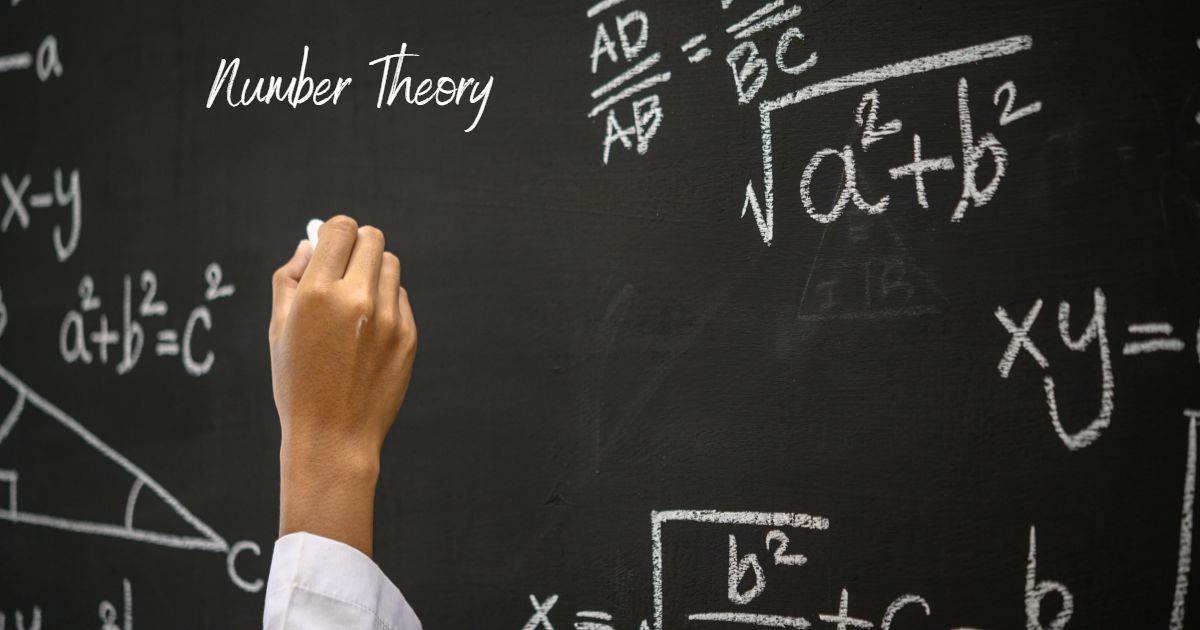A Fascinating Journey Into The World Of Number Theory

- April 6, 2023
- 1413
Number Theory, often considered the "Queen of Mathematics," is a fascinating branch of mathematics that delves into the properties and relationships of numbers, particularly integers. Despite its seemingly simple subject matter, Number Theory is rich with complex ideas, intriguing problems, and profound connections to other areas of mathematics. In this blog post, we will explore the fundamental concepts of Number Theory and its captivating beauty.
A Brief History of Number Theory
Number Theory has a long and storied history dating back to ancient civilizations, with roots in the works of the ancient Greeks, Babylonians, and Egyptians. One of the earliest known mathematicians who made significant contributions to Number Theory was the Greek mathematician Euclid, who wrote "Elements" around 300 BCE. This work laid the foundation for geometry and included important Number Theory results such as the infinitude of prime numbers.
Throughout history, mathematicians like Fermat, Euler, Gauss, and Riemann have made groundbreaking discoveries and formulated conjectures that have shaped the development of Number Theory. Today, Number Theory is an active area of research, with numerous open problems and conjectures still waiting to be solved.
Fundamental Concepts
-
Prime Numbers: Prime numbers are integers greater than 1 that have only two distinct positive divisors: 1 and the number itself. Examples include 2, 3, 5, 7, and 11. Prime numbers play a central role in Number Theory, and their distribution and properties have been the subject of extensive study for centuries. The Fundamental Theorem of Arithmetic states that every positive integer greater than 1 can be uniquely factored into a product of prime numbers.
-
Divisibility and Factorization: Divisibility is the concept of one number being divisible by another without leaving a remainder. In Number Theory, the study of divisibility properties and factorization methods is crucial. For example, the Euclidean algorithm is a widely-used method for finding the greatest common divisor (GCD) of two integers.
-
Modular Arithmetic: Also known as "clock arithmetic," modular arithmetic is a system that wraps around upon reaching a certain value called the modulus. It is useful for solving problems involving remainders and has numerous applications in cryptography, computer science, and engineering. Modular arithmetic is expressed using the congruence symbol (≡) and the modulus (mod).
-
Diophantine Equations: Named after the ancient Greek mathematician Diophantus, Diophantine equations are polynomial equations with integer coefficients for which integer solutions are sought. Some famous examples include Fermat's Last Theorem and the Pythagorean triplets.
The Beauty and Complexity of Number Theory
One of the most captivating aspects of Number Theory is its ability to pose seemingly simple problems that lead to deep and intricate mathematical ideas. The Collatz conjecture, for instance, is a deceptively simple problem that remains unsolved despite considerable effort by mathematicians.
Number Theory also demonstrates the interconnectedness of mathematics, with concepts and results that find applications in diverse fields such as cryptography, coding theory, and combinatorics. The RSA algorithm, a widely-used cryptographic method, relies heavily on Number Theory principles, such as modular arithmetic and the properties of prime numbers.
Conclusion
Number Theory is a mesmerizing world of integers, prime numbers, divisibility, and Diophantine equations that continues to captivate mathematicians and enthusiasts alike. Its elegance, depth, and wide-ranging applications demonstrate the power and beauty of mathematical thinking. As we continue exploring Number Theory's intricacies, we deepen our appreciation for the profound patterns and relationships hidden within the seemingly simple realm of integers.






